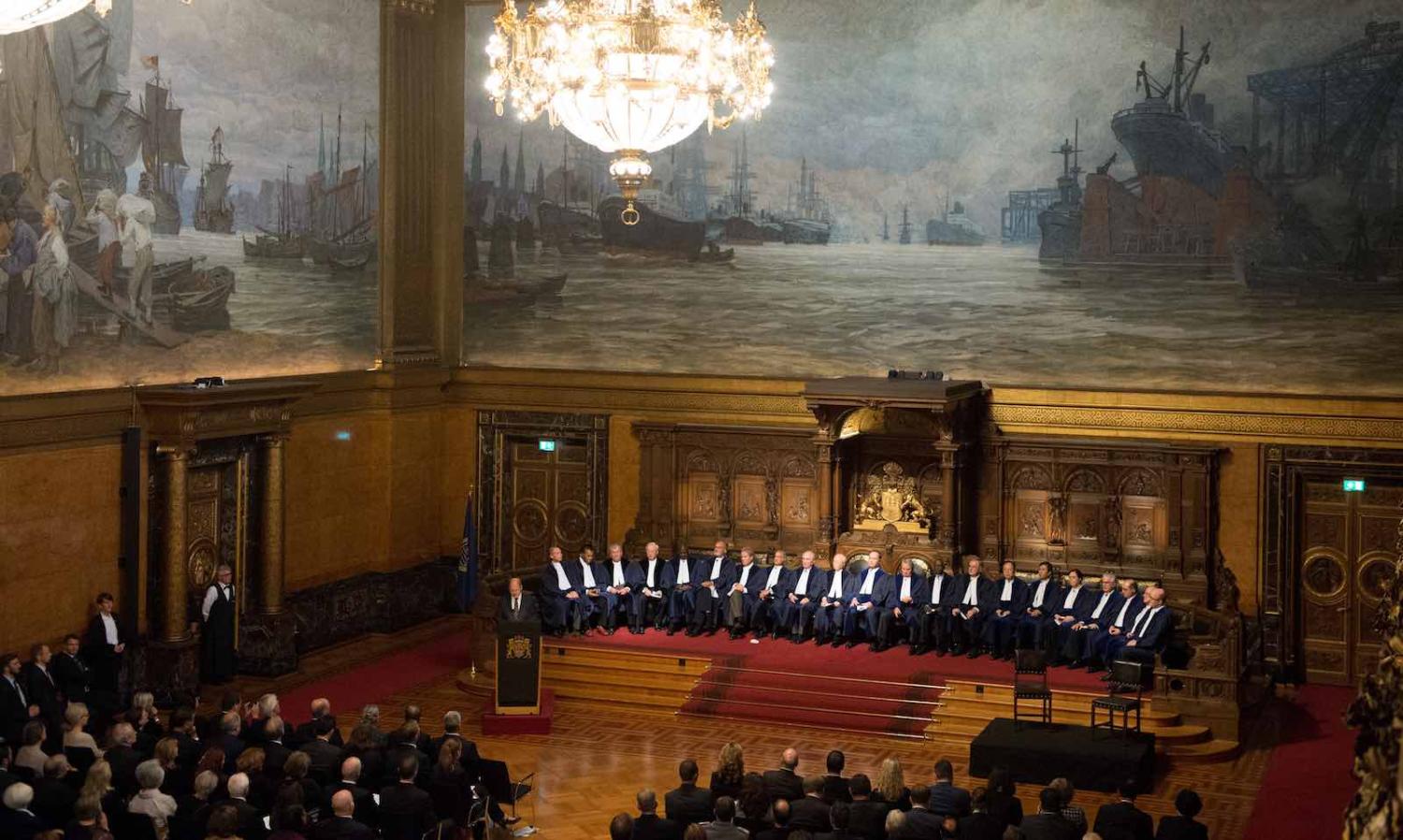As the historical development of international law has been dominated by European principles and doctrine, there is an argument that public international law has always been associated with a Western-centric view of the world. Moreover, major public international law judicial organs such as the International Court of Justice (ICJ), Permanent Court of Arbitration (PCA) and the International Criminal Court (ICC) are all located in the Netherlands, while the International Tribunal for the Law of the Sea (ITLOS) is located in Germany. This has contributed to a cynical view, including in Asia, that international law is controlled by Western countries.
So the announcement earlier this month that Singapore would become a venue for hearing cases before ITLOS marked a milestone.
ITLOS is an international body for the settlement of disputes relating to the law of the sea, established by the United Nations Convention on the Law of the Sea 1982 (UNCLOS). The tribunal’s jurisdiction comprises “all disputes and all applications submitted to it in accordance with the Convention”, including contentious cases such as maritime boundary delimitation and also treaty interpretation and advisory opinion on legal questions related to the purposes of the Convention.
Although the Tribunal has a permanent headquarters in Hamburg, the ITLOS statute allows it to exercise its functions elsewhere whenever this is desirable. The agreement with Singapore is the first concluded allowing a public international judicial organ to be heard outside Western and European countries.
Asian states may be reluctant to settle their disputes through international law mechanisms that are perceived to symbolise Western interests.
Professor Simon Chesterman has written extensively of Asia’s under-representation in much public international law discourse. For instance, Asia has the lowest rate of acceptance of compulsory jurisdiction in international dispute resolution in the ICJ, and the lowest membership of the ICC.
In the ICJ, only 8% of Asian states have accepted compulsory jurisdiction, in contrast to 30% of European states, 39% of Latin American states, and 41% of African states. In other international institutions and conventions, including the ICC and the World Trade Organization, Asian states have also been left behind in terms of the number of participants.
The trends are similar in ITLOS. Since UNCLOS entered into force in 1994, the Tribunal has adjudicated more than 25 cases, both contentious and advisory, ranging from maritime boundary delimitation and land reclamation cases to opinion relating to responsibilities and obligations of states.
However, only a few Asian countries have brought disputes before ITLOS, namely Bangladesh, India, Japan, Malaysia, Myanmar and Singapore – a total of six Asian countries out of more than 40.
There could be many reasons Asia is under-represented in international dispute settlement mechanisms.
The legacy of colonialism has affected Asia's trust in the rule of international law. In India, for instance, international law is often seen as a tool for justifying centuries of colonialism. Another impression that has been cited is unequal treaties going back to the 19th century and through much of the 20th century which create questions about the legitimacy of international law, and have led to a sense of “international law as an instrument of political power”, as Chesterman has written. Asian states may therefore be reluctant to settle their disputes through international law mechanisms that are perceived to symbolise Western interests.
There are also practical reasons for the relative lack of Asian representation. The most basic is geography – it costs a great deal to fly all the necessary agents and delegations from Asia to Hamburg or The Hague. With cases now to be heard in Singapore, these costs will reduce significantly. Moreover, by holding proceedings in Singapore, the impression of international law as entirely Western or Euro-centric no longer stands up.
For all these reasons, it seems likely that in the next few years more Asian countries will refer more maritime disputes to ITLOS.

